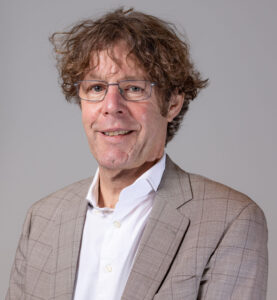Electrification
Electrification is set to play an essential, even indispensable, role in reducing CO2emissions and making the transition to sustainable energy. After all, if we want to significantly reduce the use of fossil fuels, sufficient ‘green’ electricity will need to be available.
Far-reaching consequences, too few electrical engineers
“Electrification is set to play an essential, even indispensable, role in reducing CO2 emissions and making the transition to sustainable energy. After all, if we want to significantly reduce the use of fossil fuels, sufficient ‘green’ electricity will need to be available.”

“Electrification has far-reaching consequences in several areas: power grids and homes need to be brought up to date, previously separate energy production and distribution systems need to converge, battery storage is required, millions of charging stations need to be installed, energy meters need to be fortified, solar panels installed, grids equipped with intelligence and new functionalities… and so on. This raises a new question: who will actually do all this work? Because in order to make the energy transition a reality, we will need a vastly greater number of electrical technicians and engineers.”
“However, around the world, there has been a persistent shortage of precisely this profession for years. In fact, the electrical engineering sector appears to be suffering from an image problem.”

“At the end of October, Dutch broadcaster VPRO ran a documentary titled ‘The New Elite’. The program explained how the planned energy transition appears to be failing due to a shortage of electrical technicians and engineers. Several experts discussed the question: why are technical professions so unfashionable? The conclusions were interesting: appreciation of this type of work remains low, and ‘practical’ skills and subjects ought to be given more recognition.”
“Fortunately, the situation is not entirely hopeless – but it is absolutely vital that young people become interested and motivated to work in electrical engineering. At HyTEPS we support this by enriching vocational education on the basis of our expertise, for example, and increasing students’ practical professional knowledge. We work closely with Eindhoven University of Technology and Avans, Fontys and HAN universities of applied sciences. HyTEPS has developed a ‘Power challenge’ for students and is currently implementing this with institutions for higher education. Of course, we realize that the students we’re targeting with these activities have already made the choice to study Electrical Engineering. The challenge will mainly consist of awakening new interest in this subject in regional secondary education. Perhaps we ought to make technology subjects compulsory in the higher years of primary education and offer appealing practical examples.”
“We have offered several academics and trainees placements with our company. In addition, we regularly organize guest lectures, seminars and lunches on topical issues for customers, partners and other interested parties. We organize projects with the academic world and provide (online and offline) teaching programs and courses.”
“HyTEPS is an active participant in Dutch Power, a platform that aims to organize participation in education and training for all companies in the E-chain. Together, we clarify how attractive and varied the world of power is. The contribution of each link in the energy transition becomes clear, as does the fact that this sector offers a wide variety of functions, careers and earning potential.”

“Above all, let’s not forget that our sector need to respond to everything that can might electrical engineering ‘sexier’. This can be achieved by developing appealing themes: the adventures of Elon Musk or Jeff Bezos, for example, but also the important role that electrification will play in the issues that many young people find extremely important, from development cooperation to the environment!”
“Electricity chain suppliers stand to make a great deal money in the coming years: substantial investments have to be made across the entire energy value chain. Cables, connectors, installations and other components must be reinforced and updated – after all, any system is only as strong as its weakest link. But this introduces the question: how much money will be made available for employment conditions?”